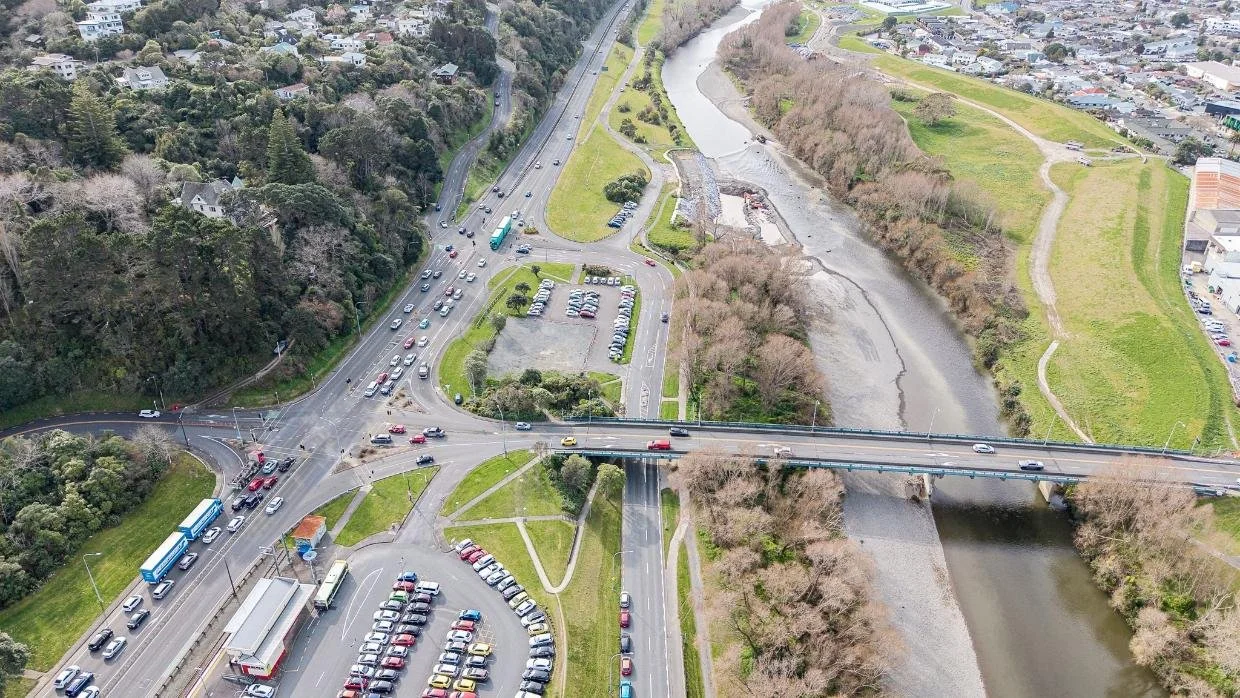Chris Bishop Diverts Housing Funds for Controversial Bridge Project in Lower Hutt
Senior minister Chris Bishop has faced criticism after using housing funds allocated for stormwater infrastructure to cover a funding shortfall for a walking and cycling bridge in his Lower Hutt electorate. The $27 million in funds from Kāinga Ora, New Zealand's state housing agency, were originally intended for stormwater upgrades as part of a project designed to support the development of 3,500 new homes in Lower Hutt. However, the money was redirected to support the "City Link" bridge, part of the RiverLink development, after the Government's new transport policy cut funding for non-car infrastructure projects.
Bishop, who also holds the Transport and Housing portfolios, came under scrutiny for making the decision alongside Finance Minister Nicola Willis, despite Cabinet guidelines advising that ministers should avoid making major decisions about projects within their own electorate. While Bishop defended the decision as a "pragmatic" response to the situation, critics argue that the use of housing money for non-housing infrastructure raises serious concerns about transparency and conflict of interest.
The issue began when the Government's 2024 transport policy slashed funding for walking and cycling projects. The "City Link" bridge, which was a key part of Bishop’s campaign in the Hutt South electorate, was left with a $27 million shortfall. The Hutt City Council proposed using savings from an Infrastructure Acceleration Funding (IAF) agreement with Kāinga Ora, intended for stormwater upgrades, to make up the gap.
Though Kāinga Ora supported the proposal, the Ministry of Housing and Urban Development (HUD) raised concerns, questioning both the savings in the stormwater project and the bridge’s impact on housing development. HUD officials argued that the bridge did not directly contribute to housing growth and warned of potential reputational risks from using housing funds for non-housing projects.
Bishop, however, argued that the decision was in line with the broader goals of the RiverLink development, which aims to improve infrastructure and support housing growth. He stated, "At the end of the day, it is another form of infrastructure and will help lay the foundations for more housing growth."
Labour’s transport spokesman, Tangi Utikere, criticized Bishop’s handling of the situation, suggesting he should have delegated the decision to another minister, such as Associate Transport Minister James Meager. "He’s raided funds from social housing to make himself look good in his electorate," Utikere said. Labour also argued that Bishop’s decision was influenced by the need to cover cost overruns in other transport projects.
The area in question currently.
While the funds from Kāinga Ora were not specifically earmarked for social housing, the optics of using housing money for the bridge raised concerns about transparency and governance. The Cabinet Manual suggests that ministers involved in projects within their own electorate should either delegate the decision or declare a conflict of interest. Bishop did neither, although he maintained that the decision was appropriately signed off by both him and Willis.
In the wake of the decision, the debate continues over whether the use of housing funds for non-housing infrastructure was justified or whether it was a politically motivated move to bolster Bishop’s standing in his electorate.


